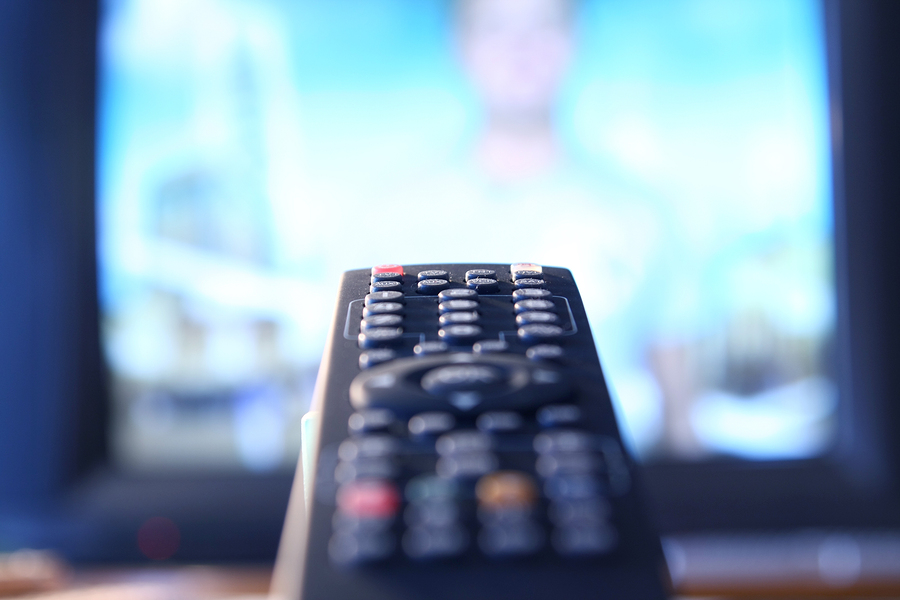 We’ve all been there. An online streaming provider unleashes an entire season of one of our favorite shows (like House of Cards, for example), so we sit down to check it out. The next thing we know, 8-10 hours of our lives have been snatched from us, leaving us bewildered and quite frankly, a little ashamed. It’s a sickness, right?
We’ve all been there. An online streaming provider unleashes an entire season of one of our favorite shows (like House of Cards, for example), so we sit down to check it out. The next thing we know, 8-10 hours of our lives have been snatched from us, leaving us bewildered and quite frankly, a little ashamed. It’s a sickness, right?
The Art of Binge-Watching
Binge-watching has become just as American as hot dogs and baseball with the advent of online streaming options such as Netflix and Hulu. Suddenly, it’s become perfectly acceptable to watch a seasons’ worth of content in a single sitting. People wear it as a badge of honor, recounting how they blazed through “Orange is the New Black’s” third season in a single night. The question is, can binge-watching negatively affect the viewer?
For starters, binge-watching is defined as the practice of watching TV for longer time spans than usual, usually of a single television show. Netflix held a survey in February of 2015 and found a whopping 73% of people defined binge-watching as, “watching between 2-6 episodes of the same TV show in one sitting.” Between two and SIX? That seems like a large gap.
If a show is an hour long, and a viewer watches five episodes consecutively, that equates to roughly one-third of the day spent sitting motionless in front of a TV screen. In December of 2014, Netflix conducted another survey involving 10 popular shows. They found 25% of users finished an entire 13-episode series in just two days.
It’s startling how much time people are spending in front of the television screen these days.
The Tangible Effects
Aside from time wasted, how does binge-watching affect people? John Black, a professor at Columbia University studied how technology affected viewer’s learning and memories. Black compared the binge-watching experience to drug addiction. In an interview with NBC News, Black said, “You take a dosage of a drug and have a certain amount of reaction to it, but if you keep doing it, it takes more and more of the same drug to get the same reaction. If you’re watching too much at a time, you kind of get dull to it and you’re not really appreciating the show.”
According to Black, “Aside from wasting time that could otherwise be spent volunteering or writing the great American novel, you aren’t really doing long-lasting damage to your brain.”
The Mental Aspect
If binge-watching gets out of control (as it often does) by cutting into sleep time, it could have negative effects on mental health.
In January, 2015, researchers from the University of Texas at Austin held a survey of over 300 millennials and examined their TV watching habits. They asked participants how often they felt lonely, and combined their findings with different measures of depression and self-regulation.
![7d32af4bc216deda2578f308c6c372df9d6cb395ad7bae2dba63ac4912d94c94-300x246[1]](http://d3tl80hy6t5toy.cloudfront.net/wp-content/uploads/sites/6/2013/04/23152337/nursing-specialties.jpg) The findings showed those who lacked self-regulatory skills were unable to stop clicking “next” to start the following episode, even if they knew they had other responsibilities. This attitude indicated a lack of self-control. The data also reflected that feelings of loneliness and depression were directly linked to binge-watching.
The findings showed those who lacked self-regulatory skills were unable to stop clicking “next” to start the following episode, even if they knew they had other responsibilities. This attitude indicated a lack of self-control. The data also reflected that feelings of loneliness and depression were directly linked to binge-watching.
This isn’t the first time these kinds of findings have surfaced. In 2013, a marketing study found that 71% of viewers planned on watching only one or two episodes, but ended up binge-watching instead. The findings also demonstrated that over half of chronic binge-watchers prefer to watch their shows at home and alone.
At the end of the day, studies aren’t revealing that binge-watching facilitates depression and lack of self-control. However, the findings suggest a link might be there. Scientists are still conducting evaluations, researchers are still compiling data and viewers are still watching TV shows.
It doesn’t seem to be a life-threatening phenomenon, but try to do yourself a favor and put the remote control down every once in a while. Or, trying balancing your TV watching schedule to one-to-two episodes a week. Maybe you’ll even encounter someone watching the same show at the same pace as you and engage in a conversation about it.










Comments are closed.